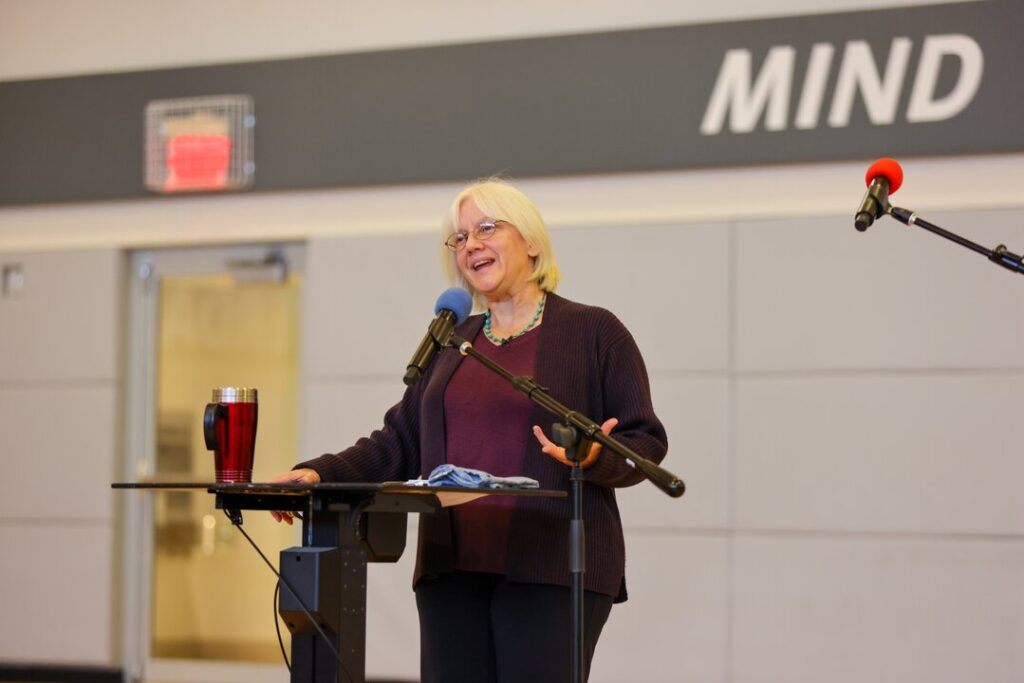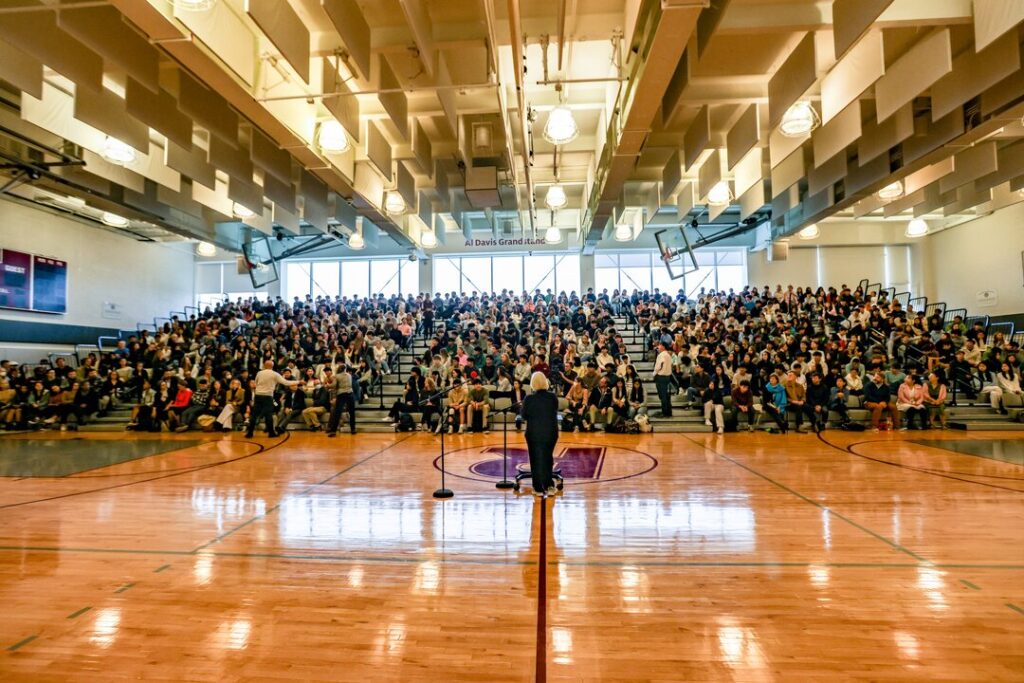Every September, the Riverdale Upper School community gathers to hear a faculty member provide a personal response to the question, “Why Learn?” As Assistant Head of Upper School Julie Choi says, “Asking why learn through the lens of an individual teacher’s life and career helps us confront questions that matter to all of us – students and teachers alike: Why are we here together? What do we, your teachers, wish for you, our students? And what might you wish for us?”
Of this year’s speaker, Upper School History faculty member Ellen Baker, a member of the Riverdale community since 2007, Ms. Choi explained, “Throughout her tenure, Ms. Baker has put her distinctive mark on our history courses, including various electives, which have allowed students to learn from her expertise and dive deeply into their own passion for all things history. Yet, what stands out to me is her way of being a brilliant scholar with intellectual humility. She’s brilliant, but she wields this brilliance with compassion and curiosity rather than arrogance. She learns and teaches from a place of curiosity and generosity.”
Ms. Baker’s interest in history was sparked by her desire to reclaim a radical past in Kansas. Through her studies, she found pleasure in discovering the remnants of people’s lives and worldviews and how history could inspire social change. “When we study history, we’re like detectives following a trail, locating and making meaning out of the traces that people have left behind and the furrows that they’ve dug. It’s fun. And to be perfectly honest, that in itself is sufficient reason to learn. It’s gratifying to follow a trail, to collect clues, to put them together.”
Ms. Baker began her talk by saying, “We learn because we are meaning-seeking creatures on this planet. It’s what we do, and it’s what enables us to survive.” Ms. Baker explained, “I’m fascinated by the world of etymology—the study of word origins. The root of the word “learn” is “lace,” which conjures imagery of furrows and tracks. This illustrates how learning is akin to planting seeds in furrows, tracing trails, and concentrating on furrowing brows. Learning is like detective work, following traces left by those who came before us.”
However, Ms. Baker pointed out that in a world where information is readily available at our fingertips through technology, it’s easy to question the importance of traditional learning.

We are completely inundated with information all around us: the internet, TV, we are saturated with information.

First, Ms. Baker said, “There is the well-documented problem of straight-up misinformation.” Also, “The endless-scroll ability might be at odds with the contemplation we need for learning and finding genuine connections to our past and our possible futures,” she said. Taking the time to study history and cultivate a knowledge of the past can “counteract the haste with which we might otherwise conduct our own lives, make decisions, and judge people,” she added.
To conclude, Ms. Baker said that by learning history, “we can seek out the traces that other people have left. We can see ourselves in them. We can connect those traces to the big abstractions that also give shape to their lives and our lives. And, in so doing, I think we can more humanely make our own paths in this world.”
Watch Ms. Ellen Baker’s “Why Learn?” lecture above.